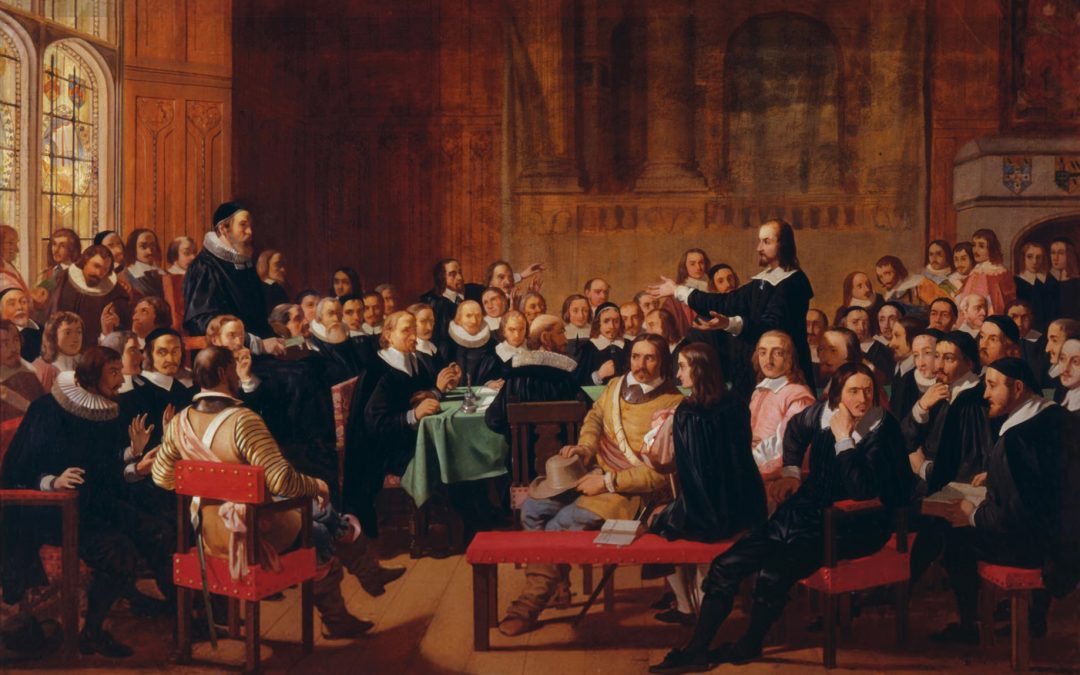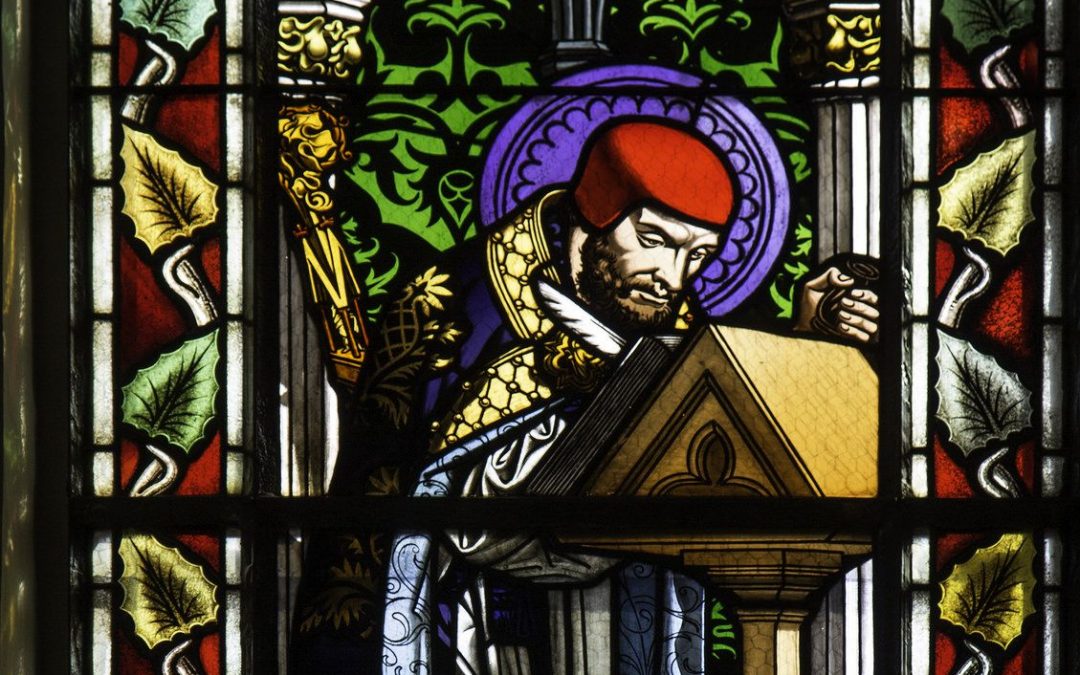
The Term “Reformed”: A Hill to Die On?
Whether Baptists are called “Reformed” or not isn’t something self-professing Reformed Baptists ought to be willing to die over.
The term is inconsequential to the substance of our theology as long as “Reformed Baptist” means a confessing Baptist subscribing to the Second London Confession (1677). This is, after all, everything that is usually meant by the term “Reformed Baptist.” Some utilize the term more broadly, describing Baptists who believe in the more basic doctrines of grace or the five points of Calvinism. The point here is that the term “Reformed” has come to signify Baptists who, like the designers of the Confession, find “hearty agreement” with their Westminster Reformed brethren “in that wholesome Protestant doctrine which, with so clear evidence of Scriptures, they have asserted.”
Still, some holdouts believe the term “Reformed” is improperly applied to Baptists altogether, identifying the term “Reformed” with belief in infant baptism. No matter how much agreement Baptists have with the Westminster Confession of Faith, rejection of infant baptism along with distinct covenant theology and ecclesiology is enough to disqualify them from properly applying the term “Reformed” to themselves. Take, for example, R. Scott Clark’s blog post from 2022, “There Is No Credo Baptist Heidelberg Catechism or Why Hercules Collins Was Not Reformed.” In this article, he writes:
For some years I have complained about Baptist squatters in the Reformed house. These are those Baptists who insist on re-defining the adjective Reformed. As it turns out, however, this habit of squatting is not new at all. Indeed, one of the earliest examples occurred in 1680.[1]
In the above-quoted article, Clark attempts to make the point that the term “Reformed” is functionally reducible to the practice of infant baptism, a la. the Westminster Confession of Faith (WCF). But I want to argue that this wrangling over words isn’t helpful for the advancement of confessional and even pastoral theology. (1 Tim. 6:4) In this article, I would like to give a few reasons why some sectors of this debate are not helpful while showing how Baptists, if they so choose, can use the term “Reformed” without the worry of applying a misnomer.
Reason #1: Clark’s Argument Can Be Equally Applied to His Own Position From the Perspective of Other Traditions
Surely, a Roman Catholic could accuse Clark—and with him the entirety of the Westminsterian tradition—of committing the same error in his use of the term “paedobaptist.” The Westminster Confession and Savoy Declaration are nearly alone in their affirmations of a paedobaptism that does not result in regeneration. Even other Protestant traditions, such as Lutheranism, affirm a kind of baptismal regeneration. Neither the WCF nor the Savoy Declaration do this. The Westminster paedobaptists are, therefore, unique in their handling of the “first sacrament” from a paedobaptist perspective.
The argument, then, from the perspective of Rome—along with the Lutherans (and perhaps some Anglicans)—might go something like this: Since your baptism neither formally nor necessarily entails the regeneration of its subjects, it is not the same baptism as ours in substance. Therefore, you espouse a different baptism than that which is stated in Ephesians 4:5, “one Lord, one faith, one baptism…”
In principle, they would be using Clark’s own argument against him. He, and the entirety of the Westminster/Savoy tradition, are “squatters” when it comes to their appropriation of “paedobaptism.” A possible retort might be that those paedobaptists were in error, and the Westminster tradition thus represented a biblically-based reform. But then, why couldn’t Baptists say the same thing? It could simply be the case that the Baptist position, as represented in the 2LCF 1677, presents a further reform, and thus constitutes a reformed position. After all, as Baptists, we reject both infant baptism and baptismal regeneration. And we see this as a correction or reform of the incorrect sacramentology of the paedobaptist tradition.
Reason #2: Words Change in Their Usage Over Time
If Clark is comfortable with changing the meaning of “paedobaptism,” he should have no issue with Baptists seeking to revise the meaning of the term “Reformed.” I have no issue with the Westminster reform of the doctrine of baptism away from the Romish notion of baptismal regeneration. This was, in my estimation, a step in the right direction. But it also means that we need to recognize the reality of diachronic change in terms. Definitional diachrony examines how terms have evolved in their usage through (dia-) time. The Oxford English Dictionary (OED) is one of the most famous examples of a diachronic dictionary.[2] In a 1977 edition of the OED, one reads the entry on the term “Reformed” as follows:
Of religion, churches, etc.; Brought to a better or purer state by the removal of errors or abuses, esp. those imputed to the Church of Rome…. The name of Reformed Church(es) sometimes includes all the Protestant churches, and sometimes is specifically restricted to the Calvinistic bodies as contrasted with the Lutherans.[3]
Dates where the term is variably used are 1563, 1588, 1646, and 1772. In the 1646 usage, “The French Protestants would make no scruple to submit to it…, had they a King of the Reform’d Religion.” The idea of a monarch supporting a particular denomination of Christians runs against the grain of Westminster Confession, ch. 23, “…it is the duty of civil magistrates to protect the church of our common Lord, without giving the preference to any denomination of Christians above the rest…” Applying Clark’s angle to the disparity between the French Protestant usage of the term and that WCF, we might conclude the WCF isn’t reformed! In 1741, the “Reformed Church is again divided into the Lutheran Church, the Calvinist Church, the Church of England, etc…” Yet, on Clark’s website, the Heidelblog.net, he omits the Lutheran Augsburg Confession and the Anglican 39 Articles under his page linking to various Reformed confessions.
Who, then, is misappropriating the term? R. Scott Clark or history itself?
This isn’t a problem for those of us who are willing to recognize the fungibility of linguistic definitions, i.e. diachrony. This is what the OED seeks to catalog. In light of the evolution of terms, it seems fallacious to reduce the term “Reformed” to the Westminster practice of infant baptism. Especially when the Westminster tradition does the same thing with terms recovered from Rome, like “baptism,” “synod,” “catholicity,” etc. History demonstrates that the term “Reformed” has been used more or less broadly than a mere denomination of Westminster Christianity.
Given the etymology of the term “Reformed,” if contemporary Baptists find its application useful for distinguishing confessional and Calvinistic Baptist churches from non-confessional and non-Calvinistic Baptist churches, why hinder this utility, especially if this practice goes back as far as the 17th century (as Clark noted above)? On a pastoral note, when it comes to novices in the faith, we need to be especially careful about our particularities so that we do not violate Paul’s rule in Romans 14:1, “Receive one who is weak in the faith, but not to disputes over doubtful things.”
Reason #3: The Word “Reformed” Shouldn’t Matter That Much
This isn’t to say it doesn’t matter. It does. But in terms of a word integral to one’s doctrinal commitments, it’s not that significant. This is because the term existed as a general adjective before its appropriation in the 16th and 17th centuries by Protestant Calvinists, perhaps dating to the 1340s. The term “reformed” could apply to anything. Lexically, it simply means, “to form again,” or “the amendment or altering for the better.”[4] A rod of iron is “reformable” if it is bent out of shape. Therefore, if Baptists perceive themselves to be a more perfectly amended theological tradition, then the term properly applies according to its lexicography.
According to a recent post by “Jules Diner” on X, which Clark re-posted, “Baptists insisting that they’re Reformed (they’re not) is not altogether unlike men insisting that they’re women… Their argument boils down to, ‘It’s how we identify and we don’t care what you think the word means!” Well, we do care what Jules and Clark think about what the term “Reformed” means. But we respectfully disagree with their a-historical restriction of the term to Westminster paedobaptism.
Furthermore, if Baptists co-opting the term “Reformed” is akin to the identity politics of the transgender movement (a ridiculous suggestion), then so is Clark’s appropriation of the term “paedobaptism.” What is more, Clark approvingly uses terms like “catholicity” on his website (see here). If Clark identifies as a “catholic” is he not squatting on Rome’s territory like trans persons squat on the territory of the opposite sex? If a Romanist followed Clark’s line of thought, it seems like they could make this argument with about as much validity.
Conclusion
Before we kick up a bunch of dust over a simple word, a simple caution, if I may: Baptists shouldn’t trouble themselves over the term “Reformed.” It’s not a big enough deal. Though it comes with some utility for our current moment in theological history (a utility I wanted to justify in this post), our Baptist tradition does not live or die by a single adjective. We may as well call ourselves “Particular Baptists,” or “Confessional Baptists,” or even “Sovereign Grace Baptists.” Each of these terms may be helpful in various ways. And truly, wrangling over such a word only does tender consciences harm upon final analysis. To make the historical and theological argument is one thing, but to defame each other over adjectives seems… harsh.
Resources:
[1] R. Scott Clark, “There Is No Credo Baptist Heidelberg Catechism or Why Hercules Collins Was Not Reformed,” 2022, https://heidelblog.net/2022/07/there-is-no-credo-baptist-heidelberg-catechism-or-why-hercules-collins-was-not-reformed/.
[2] Judy Pearsall, “Diachronic and Synchronic English Dictionaries,” in The Cambridge Companion to English Dictionaries, 2020, https://www.cambridge.org/core/books/abs/cambridge-companion-to-english-dictionaries/diachronic-and-synchronic-english-dictionaries/BD8E174AFD4AF4C45C59C15B67AA1060.
[3] The Compact Edition of the Oxford English Dictionary, 1977, 2466.
[4] The Compact Edition of the Oxford English Dictionary, 1977, 2465.




